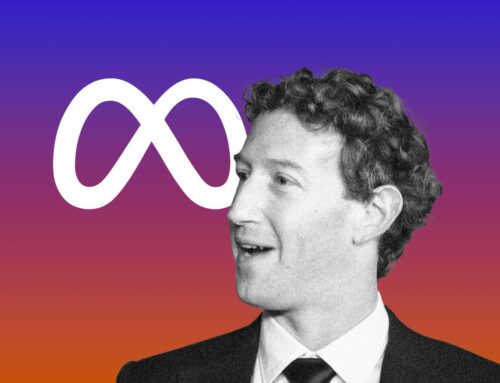Facebook’s Group Pivot: From Private Sanctuaries to Public Powerhouses
November 15, 2025
In a move that could reshape online communities, Meta Platforms Inc. has introduced a feature allowing administrators of private Facebook Groups to switch their communities to public visibility. Announced on November 3, 2025, this update enables groups to expand their reach without exposing historical content, addressing long-standing demands from community managers while navigating complex privacy landscapes.
The change comes at a time when social platforms are under increasing pressure to balance growth with user protection. According to Meta’s official blog, admins can now convert groups while keeping past posts hidden from non-members, with options for members to opt out or delete their contributions. This follows years of feedback from group leaders seeking ways to boost discoverability without compromising privacy.
The Mechanics of the Switch
The process is straightforward but layered with safeguards. Admins initiate the change through group settings, triggering notifications to all members. Users have 30 days to review and decide whether to stay, leave, or remove their content. Future posts become visible to anyone on Facebook, potentially amplifying engagement through the platform’s recommendation algorithms.
Data from similar platform shifts suggests significant growth potential. A report from Social Media Today indicates that public groups often see a 46% increase in member retention through targeted nurturing strategies, as broader visibility attracts more active participants. However, the same source warns of the need for GDPR audits to ensure compliance when handling user data across visibility changes.
Impact on Community Growth
Industry experts view this as a boon for community builders. “We’re giving Facebook Group admins the option to change their group from private to public while still protecting the privacy of members,” stated Meta in a press release cited by Facebook Newsroom. This could transform niche groups into broader forums, fostering organic growth.
Posts on X (formerly Twitter) reflect enthusiasm among marketers. One publisher noted that the switch acts as a ‘hidden growth engine,’ with Facebook’s algorithms pushing content to non-followers, similar to TikTok’s For You page. WebProNews reports that this feature addresses privacy concerns while facilitating community expansion, potentially increasing engagement metrics by exposing groups to wider audiences.
Navigating GDPR Compliance Challenges
European regulators are watching closely. The General Data Protection Regulation (GDPR) requires explicit consent for data processing changes, and shifting visibility could trigger compliance reviews. A thread on UK Business Forums from 2019 highlighted early concerns about data handling in closed groups, which remain relevant today.
According to PPC Land, the update includes ‘safeguards protecting member privacy and historical content visibility,’ but admins must audit past interactions. The Irish Data Protection Commission, Meta’s EU regulator, has previously investigated Facebook breaches, as noted in X posts referencing potential fines up to 4% of global turnover for GDPR violations.
Retention Strategies in the New Era
Beyond growth, the feature emphasizes retention. Social Samosa reports that it helps managers expand reach while maintaining privacy, with tools for member notifications and opt-outs. Small Business Trends suggests this empowers admins to enhance dynamics, potentially boosting retention by 46% through personalized nurturing.
Real-world examples are emerging. A post on X from Publisher in a Box describes how the change enables ‘private groups to go public with past posts remaining private,’ calling it ‘MASSIVE for content distribution.’ This aligns with Meta’s goal of making groups more discoverable, as per their announcement.
Broader Implications for Digital Ecosystems
The shift reflects broader trends in social media. TechJuice notes it raises questions about privacy and trust, with admins gaining flexibility but facing new responsibilities. Digital Information World highlights that older content remains safeguarded, allowing groups to evolve without historical baggage.
Comparisons to past updates abound. In 2020, Facebook revamped public groups for better discovery, as detailed in their Privacy Matters blog. This latest iteration builds on that, incorporating lessons from data scandals and regulatory scrutiny.
Expert Perspectives and Future Outlook
Analysts predict mixed outcomes. “A significant change, which could be of concern to some group members,” warns Social Media Today in their coverage. Yet, for businesses, it’s an opportunity to convert communities into marketing funnels, leveraging public visibility for lead generation.
On X, discussions emphasize compliance: one post references GDPR’s impact on data transparency, echoing sentiments from investigative journalists like Carole Cadwalladr. As platforms evolve, this feature may set precedents for competitors like LinkedIn or Discord in handling group privacy transitions.
Strategic Advice for Admins
For industry insiders, preparation is key. GroupBoss.io’s 2025 guide on public vs. private groups advises aligning settings with community goals. Admins should conduct privacy audits, communicate changes clearly, and monitor engagement post-switch.
Ultimately, this update underscores Meta’s push towards more open ecosystems while respecting user rights. As reported by Social Discovery Insights, it’s a ‘significant shift’ that could redefine how online communities operate in an era of heightened data awareness.
Search
RECENT PRESS RELEASES
Related Post



